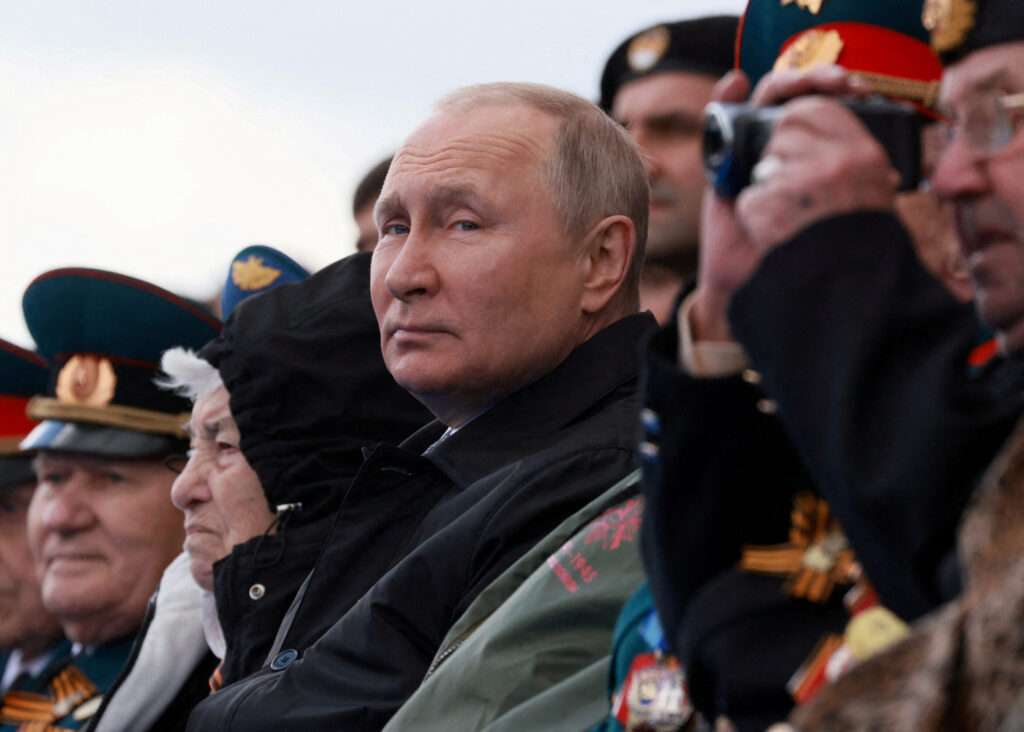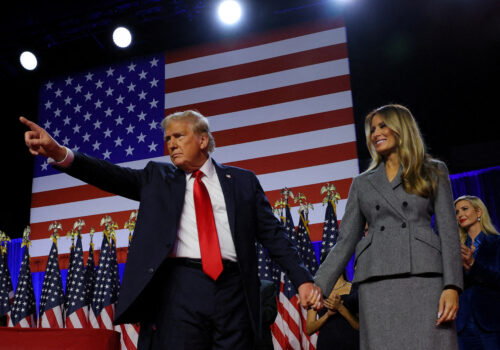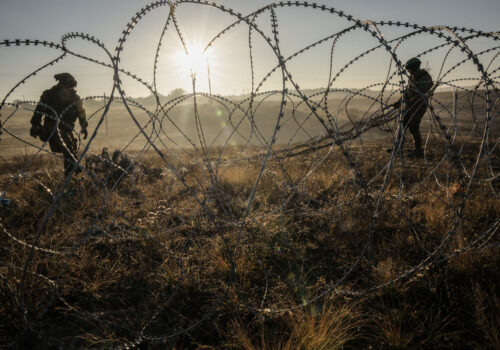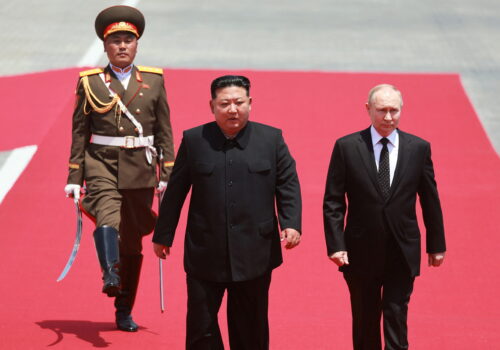Donald Trump’s US presidential election victory has sparked a new round of speculation over the possibility of a compromise deal with the Kremlin to end the war in Ukraine. Many commentators are convinced that some form of Ukrainian territorial concessions are now inevitable. Others insist that trading land for peace is Kyiv’s only option to exit a devastating conflict that is threatening to destroy the Ukrainian nation.
These arguments are certainly not without merit, but anyone now calling for a negotiated settlement that grants Russia control over large parts of Ukraine must also consider the consequences of such an historic step. If the Ukrainian authorities are forced to cede land in exchange for peace, Vladimir Putin’s entire invasion will be legitimized and his imperial appetite will only grow. The West may succeed in securing a temporary respite at Ukraine’s expense, but the threat of an expansionist Russia will remain and the ultimate cost of stopping Putin will only rise.
Stay updated
As the world watches the Russian invasion of Ukraine unfold, UkraineAlert delivers the best Atlantic Council expert insight and analysis on Ukraine twice a week directly to your inbox.
The entire notion that Putin could be satisfied by simply freezing the war along the current front lines in southern and eastern Ukraine reflects a fundamental misunderstanding of the imperialistic motives behind Russia’s invasion. Putin already rules over what is by far the largest nation on the planet. He has little interest in seizing a handful of Ukrainian regions or adding new land to Russia’s staggering vastness. Instead, Putin’s decisions are shaped by an almost mystical belief in his own historic mission that is beyond the comprehension of many if not most observers in the West.
Putin’s whole political career has been defined by his burning resentment at the perceived injustices of the Soviet collapse. Since the very early years of his reign, it has been apparent that Putin regards the emergence of an independent Ukraine as a particularly painful symbol of Russia’s post-Soviet humiliation. Back in 2005, he had Ukraine very much in mind when he famously described the disintegration of the Soviet Union as the “biggest geopolitical catastrophe of the twentieth century.” Over the subsequent two decades, Putin has frequently elaborated on his view that Ukrainians are actually Russians (“one people”) who have no legitimate right to a state of their own.
Putin’s Ukraine obsession is not only a product of his determination to reverse the verdict of 1991. Crucially, he regards modern Ukraine’s efforts to secure a democratic European future as a potential catalyst for the further breakup of the Russian Federation. Like most of his current Kremlin colleagues, Putin’s formative political experience came during the twilight years of the USSR. As a young KGB officer in East Germany, he was on hand to witness the fall of the Berlin Wall and watched in horror as the entire Soviet Empire in Central and Eastern Europe evaporated almost overnight.
This has left Putin with a lifelong dread of people power movements and a profound sense of Russia’s imperial fragility. In light of this backstory, it is hardly surprising that he was so violently triggered by Ukraine’s two post-Soviet revolutions, and so obviously alarmed by the slow but steady consolidation of Kyiv’s democratic credentials. Given the patchwork nature of the Russian Federation, Putin has long been acutely aware that if left unchecked, Ukraine’s strengthening grassroots democracy and successful embrace of self-determination could eventually inspire secession movements and imperial collapse within his own authoritarian realm.
For Putin, therefore, Ukrainian independence represents an existential threat to Russia itself. This explains why he has been prepared to risk everything in order to erase Ukraine from the map. It also makes a mockery of suggestions that he could be bought off by the offer of the Ukrainian regions currently under Russian occupation. Clearly, Putin cannot risk the continued existence of a genuinely independent Ukraine. He must either reassert Russian control over Kyiv, or extinguish Ukrainian statehood altogether.
Eurasia Center events

Putin’s imperial ambitions are not limited to Ukraine, of course. He routinely describes the current invasion as a quest to return “historically Russian lands,” leaving the door open for further wars of aggression against other former vassals of the Russian Empire including Finland, Poland, the Baltic states, Belarus, Moldova, Armenia, Georgia, Azerbaijan, and the whole of Central Asia.
Evidence of this expanding imperial appetite is already visible. When Putin first announced the full-scale invasion of Ukraine in February 2022, he denied having any territorial ambitions beyond the two eastern Ukrainian provinces the make up the Donbas region. Six months later, he announced the annexation of a further two provinces. In summer 2024, Putin confirmed that his claims now extended to the administrative borders of all four provinces, despite the fact that the Russian military had yet to establish complete control over any of them.
None of this is to say that temporary territorial concessions are out of the question. On the contrary, there is growing recognition in Western capitals and in Kyiv that the complete liberation of Ukraine is not militarily feasible in the present circumstances. Nevertheless, it is vital for Ukraine’s partners to understand that any agreement to cease hostilities would not bring an end to the danger. Instead, it would mark the beginning of a new phase in the struggle against Putin’s resurgent Russian Empire. This struggle will require eternal vigilance along with dramatic increases in defense spending throughout the West. Above all, Western leaders must commit to the kind of watertight security guarantees for Ukraine that will make Putin think twice before resuming his criminal crusade for a place in Russian history.
Peter Dickinson is editor of the Atlantic Council’s UkraineAlert service.
Further reading
The views expressed in UkraineAlert are solely those of the authors and do not necessarily reflect the views of the Atlantic Council, its staff, or its supporters.

The Eurasia Center’s mission is to enhance transatlantic cooperation in promoting stability, democratic values and prosperity in Eurasia, from Eastern Europe and Turkey in the West to the Caucasus, Russia and Central Asia in the East.
Follow us on social media
and support our work
Image: Russian President Vladimir Putin watches a military parade on Victory Day, which marks the 77th anniversary of the victory over Nazi Germany in World War Two, in Red Square in central Moscow, Russia May 9, 2022. (Sputnik/Mikhail Metzel/Pool via REUTERS)




